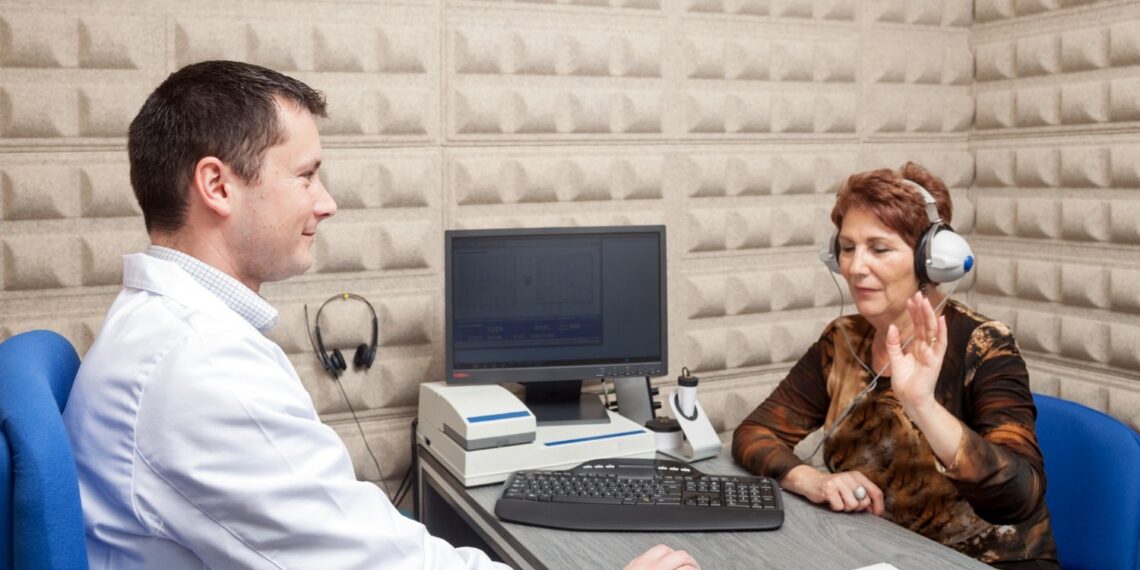[ad_1]
When we talk about an aging population today, the focus is often on baby boomers. However, the future is far more about longevity than generational labels. As a society, we are entering what has been dubbed the “longevity revolution.” Remarkably, two-thirds of all people who have ever lived past the age of 65 are alive today.
Right now, there are over 1 billion people over the age of 60 worldwide – 80 million of them in the United States – and this number is projected to grow to 2.1 billion by 2050 (World Health Organization, 2024). What does this mean for audiologists? The answer is clear: audiologists are not going to run out of patients anytime soon.
As we look ahead, people born today may live well past 100. With advances in healthcare and longevity research, it’s becoming more common to see individuals live to a ripe old age, and this will only continue to increase. This trend presents a unique challenge and opportunity for audiologists, who will play an essential role in ensuring these individuals live well and continue to hear the world around them.
For more information on hearing healthcare, please visit www.excellenceinaudiology.org.
The Role of Audiologists in the Longevity Revolution
Audiologists are poised to take on a critical role in the care of an aging and long-lived population. With longer lifespans, hearing loss – which already affects a significant portion of the elderly – will become even more common. It’s predicted that by 2050, hearing loss will affect nearly 1 in 4 people worldwide (World Health Organization, 2024). Audiologists will be needed to diagnose, treat, and prevent hearing loss in an ever-growing patient population.
One exciting advancement on the horizon is the integration of genetics into audiology practices. As we learn more about genetic predispositions to hearing loss, audiologists will increasingly rely on genetic profiles to guide treatment decisions. This will allow for more personalized and preventative care, addressing hearing loss before it progresses too far. By understanding the genetic makeup of their patients, audiologists will be able to offer tailored strategies that may slow or even prevent hearing loss, giving patients a better quality of life well into their later years.
Preparing for a Diverse, Lifelong Patient Population
While audiologists have long been focused on treating the elderly, the field must also prepare for the growing pediatric population. As longevity increases, children born today are expected to live longer than any generation before them. This demographic shift means that audiologists will be caring for a lifelong patient population, supporting individuals from childhood into their senior years.
Children born with hearing loss will need care that extends throughout their life, and as those children age, their needs will evolve. It’s likely that more children will survive and thrive into adulthood with chronic conditions, including hearing loss, that require ongoing audiological services. Whether it’s fitting hearing aids, offering support with communication strategies, or addressing changes in hearing health over time, audiologists will be an essential part of a patient’s lifelong care.
The Future: A Holistic Approach to Hearing Health
In the future, audiology will become more than just a specialty focused on treating hearing loss. It will involve holistic, life-long care. Audiologists will not only be addressing hearing loss but will also be involved in overall wellness, providing guidance on how to manage hearing health at all stages of life. As people live longer and have more complex needs, the role of the audiologist will continue to evolve, encompassing preventive care, early intervention, and continuous management.
Additionally, the patient population will be incredibly diverse, with varying cultural backgrounds, health conditions, and lifestyles. This requires audiologists to be equipped with the knowledge and tools to address a wide array of challenges. Continuing education, cultural competence, and adaptability will be essential in meeting the needs of this growing and diverse patient base.
Also read, Can Hearing Aids Help You Live Longer?
Looking Ahead
The longevity revolution presents audiologists with a unique opportunity. As the world’s population ages and lives longer, the demand for audiological services will grow significantly. But audiologists won’t just be treating hearing loss; they will be partnering with patients to ensure that they live well with their hearing intact, for as long as possible.
For those who think audiology will become a niche as baby boomers age out of the healthcare system, think again. The future of audiology is bright, and the profession will continue to grow and evolve to meet the needs of an increasingly aging, diverse, and long-living population. Whether it’s using genetics to provide personalized care, supporting children with lifelong hearing needs, or offering ongoing services to older adults, audiologists will be there every step of the way – providing essential care at every stage of life.
Remember, your audiologist should be a trusted partner in your journey towards hearing health care, offering support and expertise every step of the way.
Remember: The #1 way to prevent hearing loss is to address it as soon as possible! Early treatment can make all the difference. For more information on hearing loss, visit us anytime at www.excellenceinaudiology.org.
Let’s Have a Conversation:
When was the last time you visited your audiologist? What is the state of your hearing? How often do you visit and what is your audiologist’s role in your wellbeing?
[ad_2]
Source link


